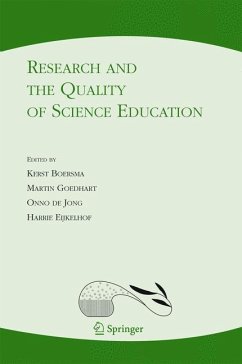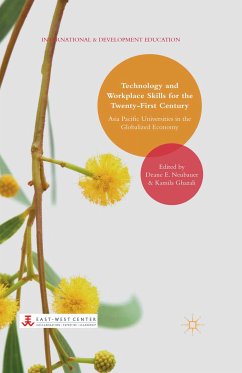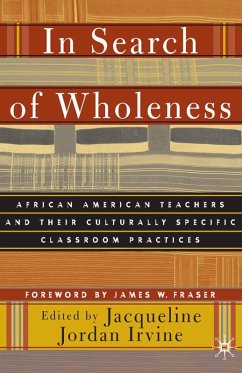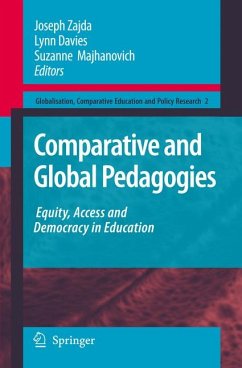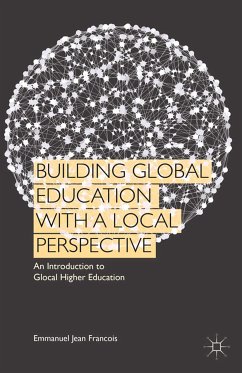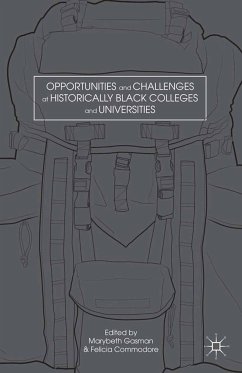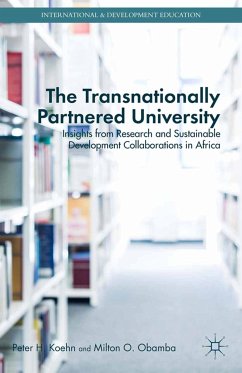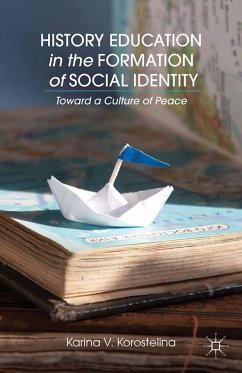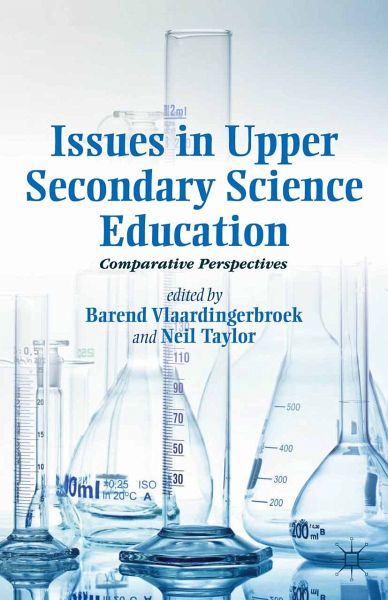
Neil Taylor
eBook, PDF
Issues in Upper Secondary Science Education (eBook, PDF)
Comparative Perspectives
Redaktion: Vlaardingerbroek, B.
Versandkostenfrei!
Sofort per Download lieferbar
Weitere Ausgaben:

PAYBACK Punkte
20 °P sammeln!






This book provides a comparative look at key issues that characterize and contextualize upper secondary science education in sixteen countries in Oceania, South America, Asia, Europe, North America, Africa, and the Middle East, incluing links with elementary and early science, final assessment, and the secondary/tertiary education interface.
Dieser Download kann aus rechtlichen Gründen nur mit Rechnungsadresse in A, B, BG, CY, CZ, D, DK, EW, E, FIN, F, GR, HR, H, IRL, I, LT, L, LR, M, NL, PL, P, R, S, SLO, SK ausgeliefert werden.
Simon McGrath, University of Nottingham, UK Terry Lyons, University of New England, Australia Luis Carlos de Menezes, University of São Paulo, Brazil Regina Cândida Ellero Gualtieri, Federal University of São Paulo, Brazil Todd M. Milford, Griffith University, Australia Benny Hin Wai Yung, University of Hong Kong, Hong Kong Kennedy Kam Ho Chan, University of Hong Kong, Hong Kong Jari Lavonen, University of Helsinki, Finland Pasi Reinikainen, Finnish Education Evaluation Council, Finland András Buda, University of Debrecen, Hungary Noraini Binti Idris, Sultan Idris Education University, Malaysia Peter Rawlins, Massey University, New Zealand Lone Morris Jorgensen, Massey University, New Zealand Carrol Walkley, Massey University, New Zealand Omaze Anthony Afemikhe, University of Benin, Nigeria Sylvanus Yakubu Imobekhai, University of Benin, Nigeria Irshad Hussain, Islamia University of Bahawalpur, Pakistan Nicholas Souter, University of Strathclyde, UK Marie Perera, University of Colombo, Sri Lanka Muammer Çalik, Karadeniz Technical University, Turkey Saouma BouJaoude, American University of Beirut, Lebanon Ghada Gholam, UNESCO (Cairo Office), Egypt
Produktdetails
- Verlag: Palgrave Macmillan US
- Seitenzahl: 272
- Erscheinungstermin: 6. März 2014
- Englisch
- ISBN-13: 9781137275967
- Artikelnr.: 40807809
"A variety of authors from countries across the world, and including those from both 'developed' and 'developing' countries, have provided comparative descriptions of upper secondary science education issues, and the context of the whole school systems. For those wishing to review exemplary information from well-informed writers, this book provides a wealth of global data not easily available otherwise. The writers are frank and open about the strengths and challenges in their systems, a welcome approach in these days where competition between nations might have led to 'papering over the cracks'. I strongly recommend that those interested in international comparisons include this book in their reading." - John Oversby, Science Specialist
Mehr anzeigen
Interest Group Convenor, British Educational Research Association; Chair, Research Specialist Group, Association for Science Education, UK
"At a time of increasing globalisation, international comparisons between education systems have become ever more important. This volume brings together contributions from 13 countries and one region (the Middle East) to provide a valuable perspective on key issues in upper secondary science. The result is both informative and, in places, quite surprising. This is a book that should be of value to anyone looking to improve their country's secondary science education or to understand how it compares in its organisation to other countries." - Michael J Reiss, Professor, Institute of Education, University of London, UK
"I highly recommend this book to secondary science teachers and educational policy personnel, no matter what country they come from, as the book is a fascinating, accurate and up to date account of the issues facing secondary teachers around the world. The book fills in the gap in educational writing on science teaching. As a secondary teacher in Australia who teachers mainly senior secondary classes I found myself in agreement with many of the explanations and opinions put forward by the outstanding group of contributing authors in this well written book based on current research on policy and its application." Stephen Zander, President of the Australian Science Teachers Association
"Barend Vlaardingerbroek and Neil Taylor provide a fresh and concise summary of the progress of science teaching. The complementary chapter structure allows the reader to easily compare the motives and strategies employed in teaching modern science, both junior and senior, in a variety of jurisdictions around the world. This book is an excellent starting point and reference for anyone looking to compare how and why science is being taught around the globe." - Ross Hudson, Research Fellow, Australian Council for Educational Research
"At a time of increasing globalisation, international comparisons between education systems have become ever more important. This volume brings together contributions from 13 countries and one region (the Middle East) to provide a valuable perspective on key issues in upper secondary science. The result is both informative and, in places, quite surprising. This is a book that should be of value to anyone looking to improve their country's secondary science education or to understand how it compares in its organisation to other countries." - Michael J Reiss, Professor, Institute of Education, University of London, UK
"I highly recommend this book to secondary science teachers and educational policy personnel, no matter what country they come from, as the book is a fascinating, accurate and up to date account of the issues facing secondary teachers around the world. The book fills in the gap in educational writing on science teaching. As a secondary teacher in Australia who teachers mainly senior secondary classes I found myself in agreement with many of the explanations and opinions put forward by the outstanding group of contributing authors in this well written book based on current research on policy and its application." Stephen Zander, President of the Australian Science Teachers Association
"Barend Vlaardingerbroek and Neil Taylor provide a fresh and concise summary of the progress of science teaching. The complementary chapter structure allows the reader to easily compare the motives and strategies employed in teaching modern science, both junior and senior, in a variety of jurisdictions around the world. This book is an excellent starting point and reference for anyone looking to compare how and why science is being taught around the globe." - Ross Hudson, Research Fellow, Australian Council for Educational Research
Schließen
Für dieses Produkt wurde noch keine Bewertung abgegeben. Wir würden uns sehr freuen, wenn du die erste Bewertung schreibst!
Eine Bewertung schreiben
Eine Bewertung schreiben
Andere Kunden interessierten sich für


